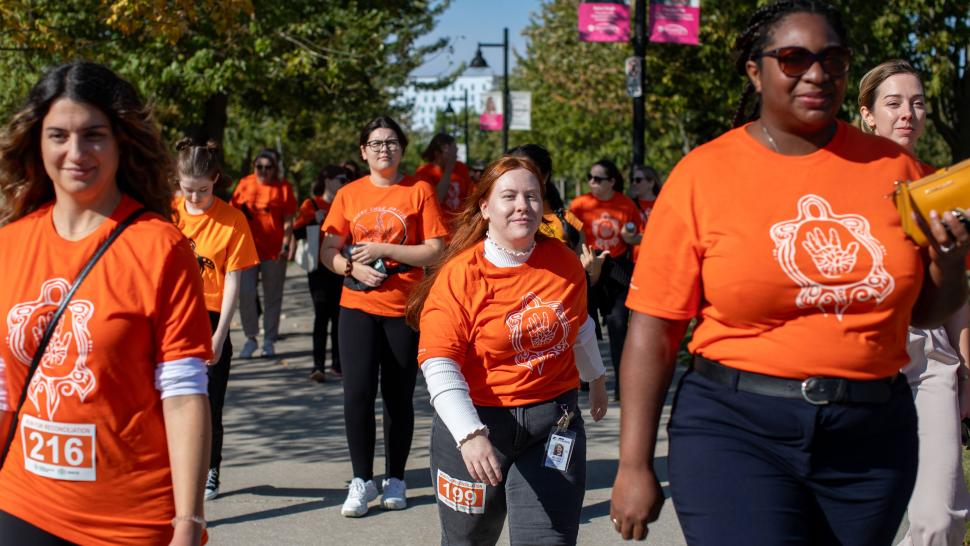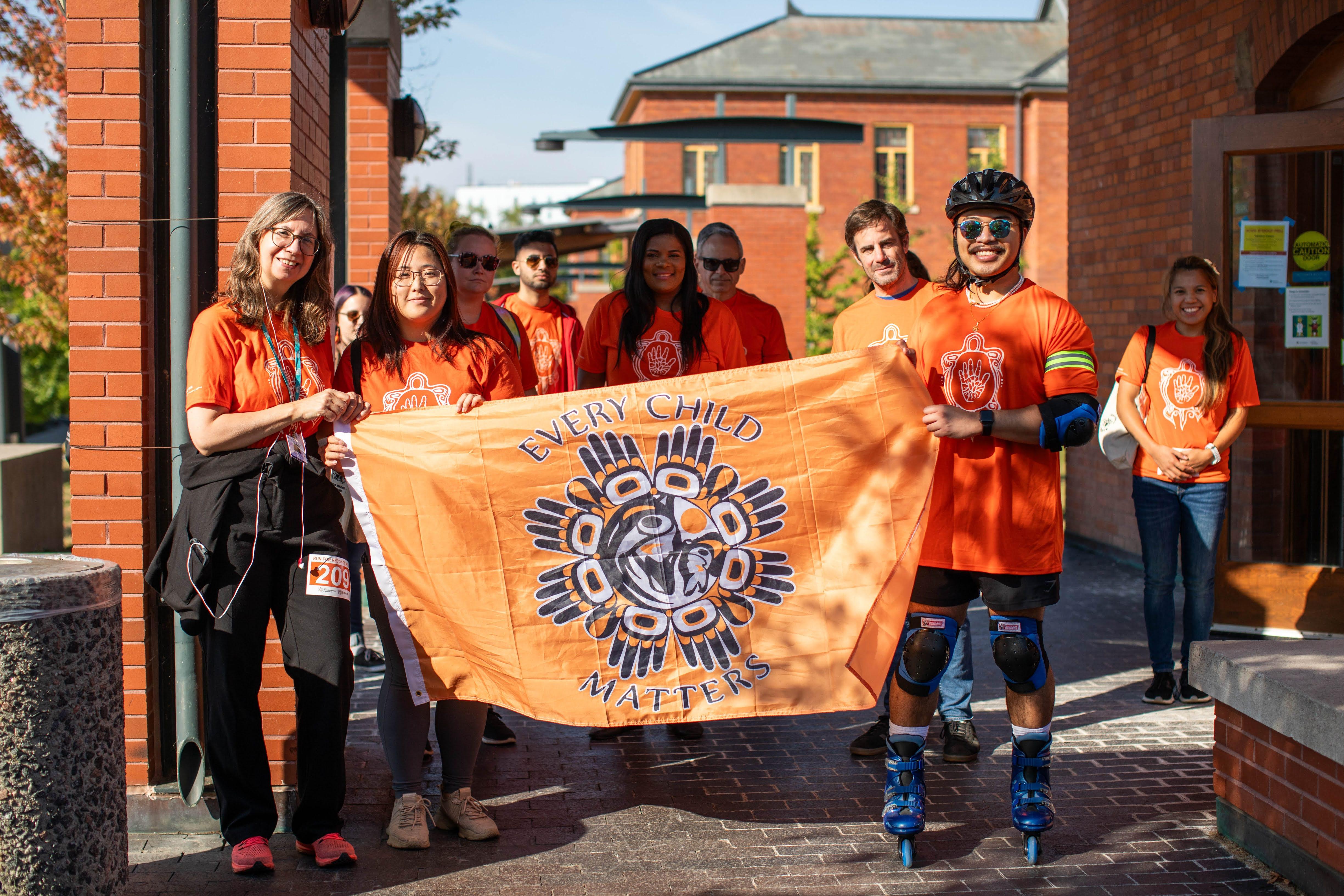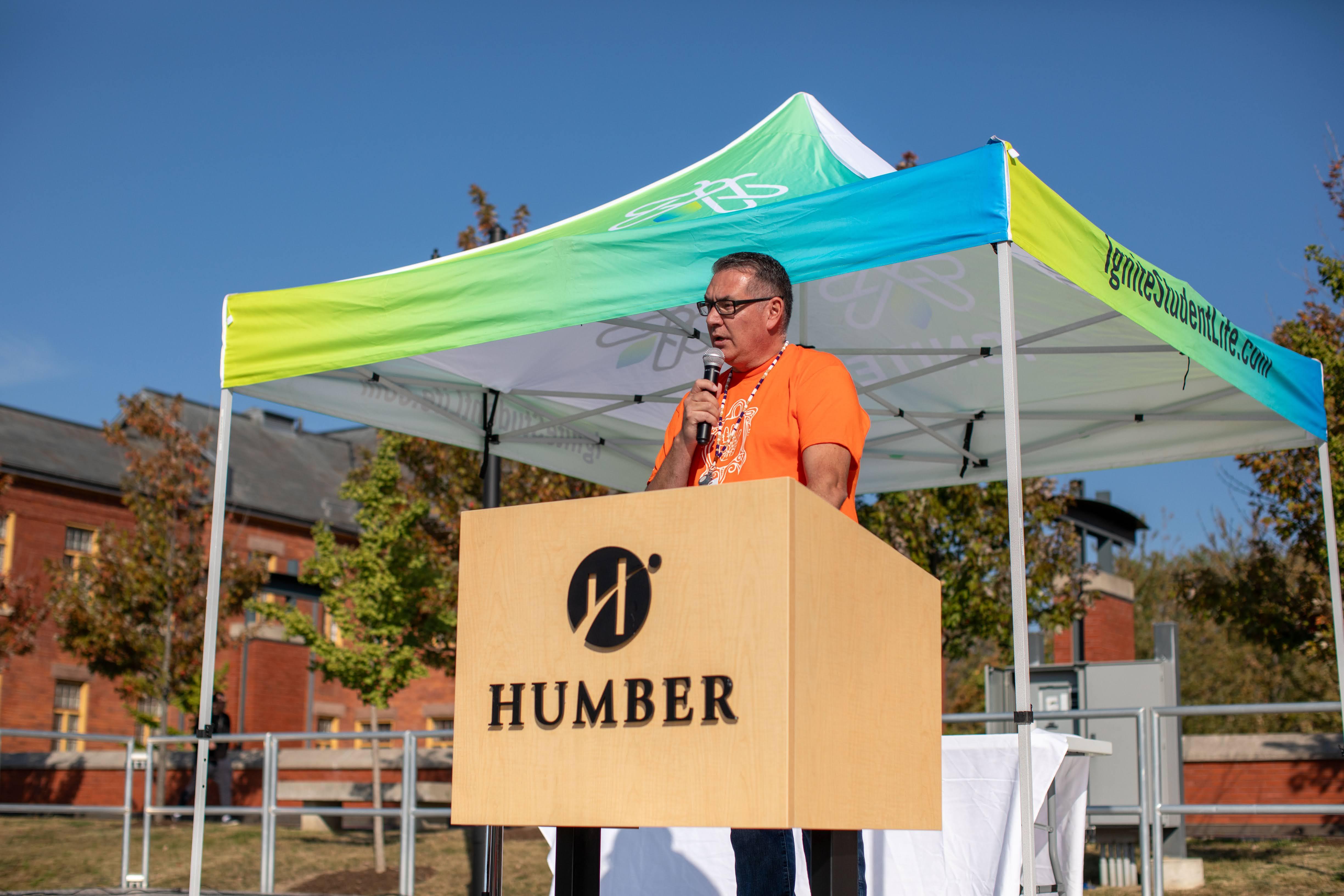
Humber College’s Lakeshore Campus was awash in orange on September 25 as the community gathered to raise funds and take part in the Walk for Reconciliation.
September 30 is the National Day for Truth and Reconciliation, which is also known as Orange Shirt Day. The day encourages Canadians to honour the survivors of residential schools while reflecting on the loss of children and the acts of cultural genocide that attempted to break the spirit and legacies of Indigenous families and communities.
It’s a day that was created to commemorate the tragic legacy of residential schools and their lasting impact on Indigenous peoples and communities to this day.
Humber honours those touched by residential schools every Orange Shirt Day by hosting events and initiatives leading up to September 30 and wearing orange shirts with the slogan “Every Child Matters.”

Kaitlyn Nicole Chapman, Indigenous community engagement coordinator with Indigenous Education and Engagement, said the walk was to increase visibility and awareness around the issue while also supporting the College’s Reconciliation efforts. Chapman said they also want to use the event to raise awareness around Indian day schools, which were similar to residential schools but had the children remain in their communities and go home to their families at night.
“We as Indigenous people have had to overcome many barriers and continue to do so to this day. So, my hope is that events like these will alter people’s ways of thinking with respect to the way they view Indigenous communities, families and individuals,” said Chapman.
The residential schools separated Indigenous children from their families and communities and were designed to strip away their traditions, cultural practices and languages. The schools were run by churches and rampant with physical, mental, emotional and sexual abuse. It’s estimated that more than 150,000 Indigenous children were sent to these schools between the 1860s and 1996.
Many never returned home and unmarked gravesites are still being discovered across the country. Chapman said research by the Truth and Reconciliation Commission of Canada and the National Centre for Truth and Reconciliation revealed that at least 4,117 students had died, and she said that the true number may never be known.
"It is my and other non-Indigenous people’s responsibility as guests on this land to understand the impacts of residential schools, the racist policies that created the conditions for the devastation of Indigenous cultures and communities, and the roles that Indigenous peoples are playing in shaping our modern world," said Ann Marie Vaughan, president and CEO of Humber College. "In order to heal and build Mino Nawendiwin, or Good Relationships, it is every Canadian’s responsibility to engage in Truth and Reconciliation. We must honour the complexities of relationships that exist all around us, learn from one another, and uplift one another."
Marvia Grandison, manager, Global Learning and Engagement, International Centre at Humber, walked the 1.5 kilometre route and said, as a mother, the issue of residential schools and what happened to the Indigenous children deeply touched her. She wanted to participate in the Walk for Reconciliation to show her support and to raise funds to help organizations working with the community.
“Actions speak louder than words,” said Grandison. “As a mother, it breaks my heart. There was no way I wouldn’t participate.”
Participants had several organizations they could donate their fundraising efforts towards. They were:
• Indian Residential School Survivors Society;
• Anduhyaun Inc.; and
• Humber Indigenous Education & Engagement Micro-Bursary Fund.

Jason Seright, Humber’s vice-president of Inclusion and Belonging, thanked those who attended for supporting Humber’s Indigenous community and urged for it to continue.
“When we support and lift one another, we soon support everyone and have no hate for each other,” said Seright.
Humber employees have participated in Truth and Reconciliation training, which was based on the Truth and Reconciliation Commission’s Calls to Action, and the Four Seasons of Reconciliation training is continuing at the College.